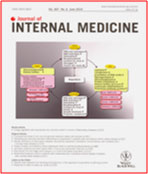
The Karolinska Institute is a research-led medical university in Solna within the Stockholm urban area of Sweden. The Karolinska Institute is consistently ranked amongst the world's best medical schools, ranking 6th worldwide for medicine in 2021. The Nobel Assembly at the Karolinska Institute awards the Nobel Prize in Physiology or Medicine. The assembly consists of fifty professors from various medical disciplines at the university. The current rector of Karolinska Institute is Ole Petter Ottersen, who took office in August 2017.

Jan Gösta Waldenström was a Swedish doctor of internal medicine, who first described the disease which bears his name, Waldenström's macroglobulinemia.
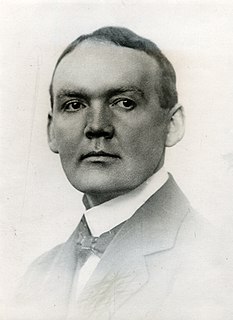
Jörgen Nielsen Schaumann was a Swedish dermatologist.
Acta Paediatrica is a monthly peer-reviewed medical journal covering paediatrics. It is published by Wiley-Blackwell on behalf of the Foundation Acta Paediatrica, based at the Karolinska Institute in Sweden.
Johan Cullberg was a Swedish professor in psychiatry and psychology, researcher, psychoanalyst, and author of a number of internationally recognised textbooks.
The Nobel Committee for Physiology or Medicine is the Nobel Committee responsible for proposing laureates for the Nobel Prize for Physiology or Medicine. The Nobel Committee for Physiology or Medicine is appointed by the Nobel Assembly at Karolinska Institutet, a body of 50 members at Karolinska Institutet which is formally a separat body not part of the institute itself. It usually consists of Swedish professors of physiology or medical subjects active at Karolinska Institutet, although the Assembly in principle could appoint anyone to the Committee. Other than the five ordinary members, ten associated members are appointed each year, for that year only.
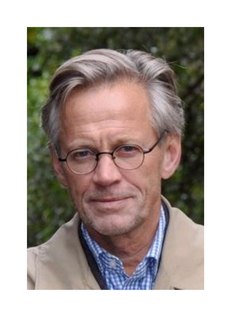
Peter Gösta Schantz, born on 28 April 1954 in Stockholm, Sweden, graduated as doctor in medical sciences at the Karolinska Institute in Stockholm in 1986, became professor in human movement sciences at Mid-Sweden University in Östersund, Jämtland, in 2008, and professor in human biology, including the multidisciplinary field of movement, health and environment, at the Swedish School of Sport and Health Sciences, GIH, in Stockholm, Sweden, in 2013.
Rolf Zetterström was a Swedish pediatrician. He was Professor of Pediatrics at the Karolinska Institute fra 1962 until his retirement in 1986. Zetterström also had a central role in the institutions awarding the Nobel Prize in Physiology or Medicine.
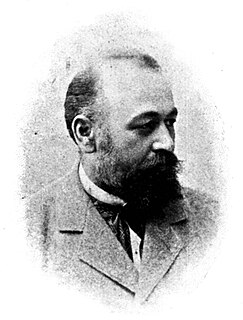
Salomon Eberhard Henschen was a Swedish doctor, professor and neurologist.
Carl Axel Gemzell was a Swedish medical doctor and pioneer in reproductive endocrinology.
Acta Chemica Scandinavica was a peer-reviewed Nordic scientific journal in the fields of chemistry. The journal was established in 1947 and was jointly managed during 53 years from beginning of 1947 until end of 1999 by the chemical societies in Denmark, Finland, Norway and Sweden. The journal was jointly owned by the four chemical societies through the Publishing Association Acta Chemica Scandinavica. The Swedish Chemical Society managed the administration of the Publishing Association at their Secretariat in Stockholm.
Karl-Axel Ekbom was a Swedish neurologist. He is mostly known for his detailed description of restless legs syndrome (RLS).

Yihai Cao, M.D., hM. D., Ph.D., is a Chinese-born Swedish scientist and a professor at the Karolinska Institute, Sweden. He is also an honorary professor/guest professor in Copenhagen University, Denmark; Linköping University, Sweden; Leicester University, UK; Shinshu University, Japan; Shandong University, China; and Peking University, China. He is an internationally recognized and cited researcher in cancer, obesity, diabetes, cardiovascular disease, and eye disease research. His publications have been cited more than 35000 times and his h-index is 92. Cao received the Fernström research prize, the Karolinska distinguished professor award, and the Axel Hirsch Prize in medicine. Cao received an ERC-advanced research grant award, and a Novo Nordisk-advanced grant award. From 2018, Cao was elected to Academia Europaea, the European Academy of Sciences and Arts, the Chinese Academy of Engineering, the National Academy of Inventors, and The World Academy of Sciences. His research findings received broad public attentions including New York Times, Reuters and Swedish National TV broad casting.

Carl Hugo Lagercrantz is a Swedish pediatrician. He is Professor Emeritus of Pediatrics at the Karolinska Institute and is a former member of both the Nobel Assembly at the Karolinska Institute, which awards the Nobel Prize in Physiology or Medicine, and the assembly's five-member working body, the Nobel Committee for Physiology or Medicine. He has also formerly been President of the Swedish Pediatric Society and the European Society for Pediatric Research. Since 2005 he has been editor-in-chief of Acta Paediatrica. Lagercrantz was appointed professor of pediatrics at Karolinska Institute in 1989 and was director of the Neonatal Programme at the Astrid Lindgren Children's Hospital at Karolinska University Hospital until 2004. He earned his PhD in 1971 at Karolinska Institute and has also written several books. He is a member of the Swedish noble Lagercrantz family, which was ennobled in the 17th century, and is a descendant of Swedish finance minister Gustaf Lagercrantz.

Isak Jundell, née Jundelsky, was a Russian-born Swedish pediatrician. He was Professor of Pediatrics at the Karolinska Institute, a member of the Nobel Assembly at the Karolinska Institute and was the first editor-in-chief of Acta Paediatrica.
Arvid Wallgren was a Swedish pediatrician. He was Professor of Pediatrics at the Karolinska Institute, a member of the Nobel Assembly at the Karolinska Institute and editor-in-chief of Acta Paediatrica from 1950 til 1964.

Nanna Charlotta Svartz was a Swedish physician and the first female professor at a public university in Sweden. Her research focused on gastrointestinal diseases and rheumatology.

Lisa Welander was a Swedish neurologist, and was Sweden's first professor of neurology, taking up her professorship at Umeå University from 1964–75.

Professor Axel Westman was a Swedish physician and one of the foremost specialists in obstetrics and gynaecology of the twentieth century.
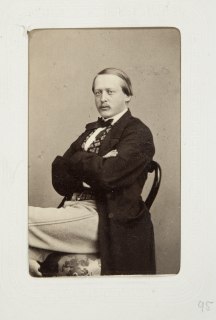
Ernst Axel Henrik Key was a Swedish pathologist, member of parliament, writer and rector at Karolinska Institute.
